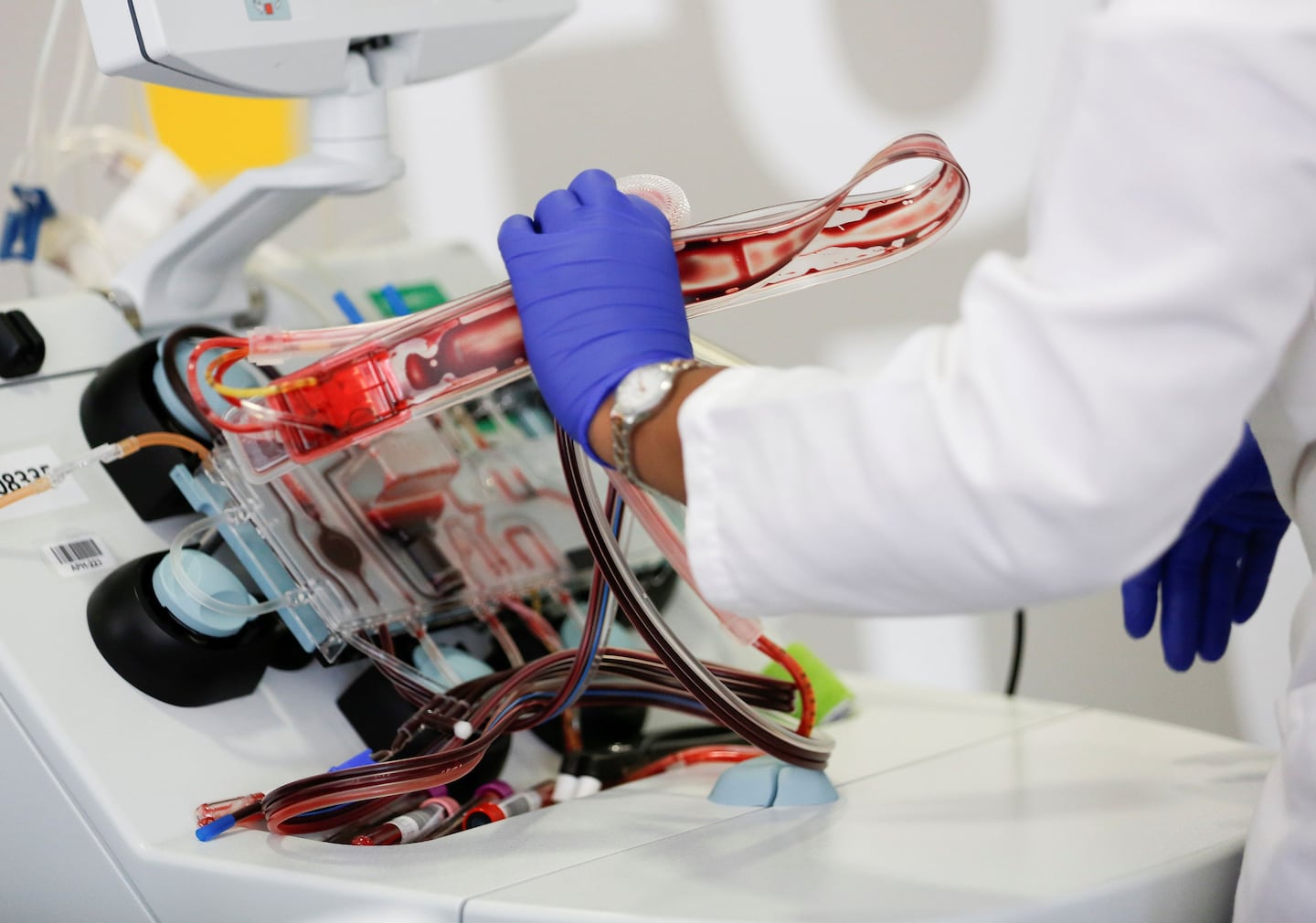The FDA should not have caved to Trump’s latest covid-19 demand

There is no solid proof that convalescent plasma is effective against covid-19. Convalescent plasma is a blood transfusion that moves antibodies from recovered covid-19 patients into those still fighting the infection. Last week, the New York Times reported that physicians Francis S. Collins, Anthony S. Fauci and other leaders at the National Institutes of Health successfully intervened and delayed what would have been an earlier FDA emergency-use authorization of the treatment.
Meanwhile, proponents of convalescent plasma have been vocal in the media and have produced papers asserting that convalescent plasma has proved effective in treating covid-19. The FDA’s decision appeared to rely on those arguments, which are deeply flawed.
So far, there have been two clinical trials studying plasma for covid-19. Of the two, one has been published in a medical journal. It disappointingly showed no improvement in patients given plasma in China.
But perhaps the second study, which remains unpublished by a medical journal, provides the most insight. Researchers in the Netherlands halted the trial early. Why? Because they measured the antibody concentrations not just of the donor plasma, but of the recipients. They found something surprising. Most of the covid-19 patients in the throes of the illness already had high levels of these antibodies. This is an important insight into why plasma transfusions have failed for so many illnesses in the past, such as Ebola. If plasma is akin to bringing a knife to a gunfight, adding a few more knives will not suffice.
It is also alarming that the FDA appears to have bought into an argument that results from retrospective studies of patients in whom the outcomes were already known are strong enough to rely on. The FDA cited such data when it claimed a 35 percent reduction in deaths among a small subset of patients under age 80 who both received plasma within three days, and who did not require mechanical ventilation. This is the very definition of cherry-picking. To hail this observation as a breakthrough, in the absence of a true clinical trial, is inappropriate.
Regarding hasty approvals of treatments during a pandemic, some will earnestly ask, “What’s the harm?” Until now, the harms of convalescent plasma have been played down. That is a mistake. Physicians and scientists decried the premature use of hydroxychloroquine, promoted by the president, on grounds that it has potentially damaging cardiac side effects, leading the FDA to revoke its earlier emergency-use authorization for the drug. The FDA was right. But the cardiac risk was always relatively low. It is troubling that even some medical experts assume that plasma is safer.
Plasma transfusions of all kinds have a well-documented rate of serious adverse events. These events include lung damage and even life-threatening anaphylaxis. Transfusions can cause an array of immune reactions, some welcome and some not, depending on the context. Given that covid-19 is in part driven by an autoimmune reaction to the novel coronavirus, more study is essential before doctors proceed with the plasma treatment.
Some data are already available. In a recent study of plasma in covid-19 patients, 25 serious reactions occurred among 5,000 transfusions. That’s 1 in 200. Four people died. Though it is hard to know if these deaths were directly or indirectly related to plasma, they must be taken seriously.
While relatively rare, there are certainly more serious harms from plasma than potentially fatal heart rhythms and other side effects related to hydroxychloroquine. If plasma turns out not to help treat covid-19, this level of risk is unacceptable. Both hydroxychloroquine and plasma are worth their risks if proof exists that they treat the condition. The efficacy for treating covid-19 simply hasn’t been established.
Why has this been played down? Probably because researchers and scientists can fight only so many battles at a time. First there was hydroxychloroquine. Then there was bleach. Then oleander. Now it’s plasma.
The difference here is that plasma might actually work in some patients. We need to know who the right patients are and whether early treatment works. We need to know if some components of plasma help while others cause harm. An FDA emergency-use authorization makes it harder for clinical trials already underway to make progress because recruiting volunteers is harder when patients think the science is settled.
The science isn’t settled. Only medical experts, not elected officials, can make the call on what constitutes safe and effective covid-19 treatments. The impulse to say we can’t afford to wait is understandable. But the truth is, we can’t afford to rush.
Read more:






